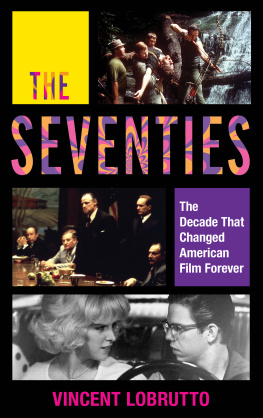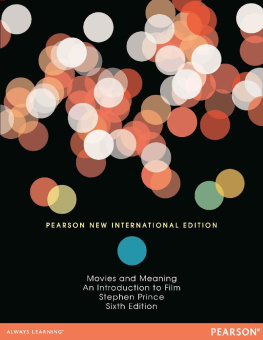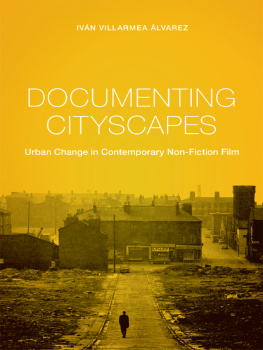
Shelton Jackson Lee did not always knowthat he wanted to be a director. However, growing up i nBrooklyn, NY, Lee was a keen observer. He was fascinated with the people in hiscommunity. His mother, a teacher, was also a huge influence in Lee's life. Shewanted her family to appreciate the arts, and would often take Lee and hissiblings to plays an d museums. In fact, she was theone who nicknamed Lee "Spike" because he was such a tough littlebaby. This nickname stuck with him, and now he isuniversally known in the film world as "Spike Lee." Even after Leeleft for Morehouse College in Atlanta (cla ss of '79),his mother was still a driving force in his life. In an interview with Esquire, Lee related how:"His mother, Jacquelyn, sent back the letters he wrote her from Morehouse,'all in red ink, corrected. She was always on us.'"
During his sophomore year at college, his mother, who had been a rock in hischildhood, died suddenly.


Lee's friends, wanting to distract himfrom his grief, started taking him to the movies.
Spike Lee had always been interested insocial dynamics, partic ularly those relating toAfrican-American communities. Movies showed him a new way to focus his ideas.He was also very critical of the roles that many African Americans had in film.They were often shown in a negative light, and portrayed as criminals. Sp ike Lee thought that someone should make movies that more accuratelymirrored his own experiences, and his community. Before he graduated fromMorehouse, Lee realized that he was the person to make these new films.
In 1985, Spike Lee made his firstfeature length movie, "She's Gotta HaveIt," in Brooklyn. It was filmed in just days, and the settings were often public parks, or simpleapartments. It cost just $175,000 to make, at a time when film production costscould soar well into the millions.

For example, the 1986 film "TopGun" had a production budget of $15,000,000. According to People magazine, SpikeLee did not take this film to Hollywood investors, but rather, "Lee raisedthe mo ney from family and friends, save $18,000 fromthe New York State Council on the Arts. He hired an unknown cast and crew onthe promise of deferred payment."
With Lee's low budget and creative gaze,Brooklyn came to life with music and energy. The main cha racter, an African-American woman, was successful,independent, and likable. This was a groundbreaking film for the way itshowcased an African-American community in a positive light. The characters were people youwould like to meet, and the settings were welcomingand hip.

The film was a hit, and made more than$7,000,000a huge payoff for all of Lee's investors.
Over 35 movies later, Spike Lee is oneof the most influential directors of all time. Hisproduction company, 40 Acres and a Mule Filmworks, is a powerhouse of film, andtelevision. His works range from serious historical films, such as thecritically acclaimed "Malcolm X" and "4 LittleGirls" (a documentary about a church bombing that killed four African-American girls), to action flicks, and comedies. Intrue entrepreneurial fashion, Spike Lee paved his own way as a director. With alittle help from his friends and family, Spike Lee has become a major force inthe film industry. Lee's films are not only wildlypopular and entertaining, but they are a reminder that movies can be a vehiclefor social change.


Lucy Liu, a petite, 5-foot-3-inch tallactress, is best known for her larger-than-life roles on the big screen. Inmany of her films, Lucy plays a high-kicking, sword-wielding action star. Ifyou catch one of her movies, you might see Lucy asone of "Charlie's Angels," fending off bad guys with smooth martialarts moves. Or, you can watch her play a cool-as-ice villain in the "KillBill" series. Whatever role she tackles, Lucy is impossible to forget.
However, Lucy was not al ways as outgoing as she is in her movie and televisionroles.
In fact, as a child, she was very shy,and did not like to stand out. Growing up in Queens, NY, it was easy to be lostin the multicultural crowd. Indeed, her neighborhood was a melting pot of m any different ethnicities and backgrounds. Her mother andfather, who were both highly educated in their native China, taught Lucy tospeak Mandarin, and encouraged her to pu rsue a sensible,dependable career. Acting wasn't exactly considered sensible, or dependable.
When Lucy left the bustle of the city toattend college at the University of Michigan, it was a huge culture shock forthe young student. For one thing, the city of Ann Arbor was not ascrowded, or as diverse as her Queens neighborhood.

Life was also much slower, when comparedto the fast-paced life in New York City. Lucy soon found that she enjoyed thecalm, and liked standing out from the crowd. Though she was studying for a degree in Asian languages and cultures, she decided to try herhand at acting as one of her extra curricularactivities.

During her senior year, she auditionedfor the school production of the play "Alice in Wonderland."
The role of Alice, a girl who findsherself in a magical world completely different from the one she had alwaysknown, w as not unlike what Lucy had experienced inleaving New York City. Sure, there were no talking caterpillars in Ann Arbor,but Lucy could relate to the way Alice felt like a fish out of water in herunfamiliar new surroundings.























